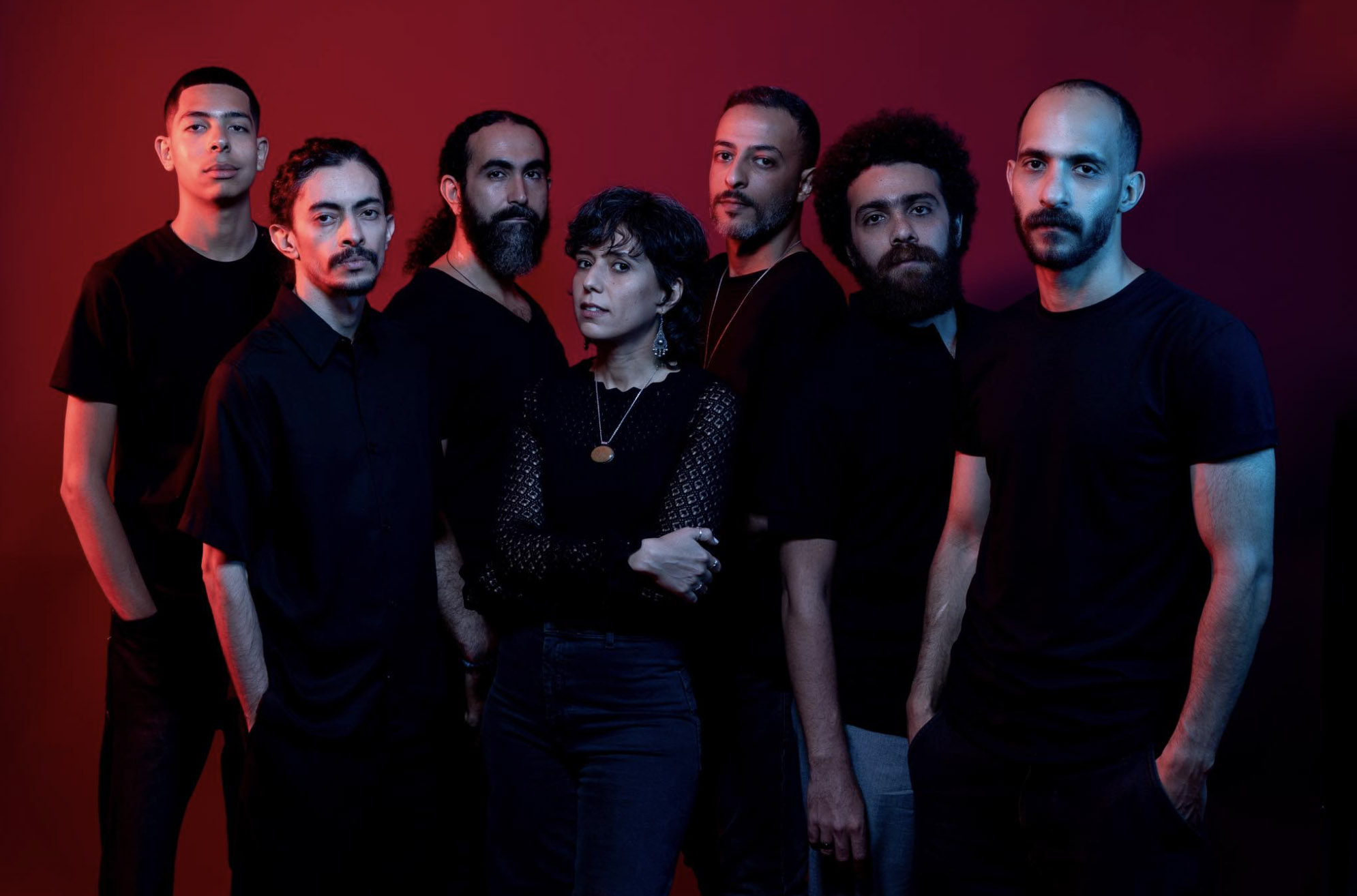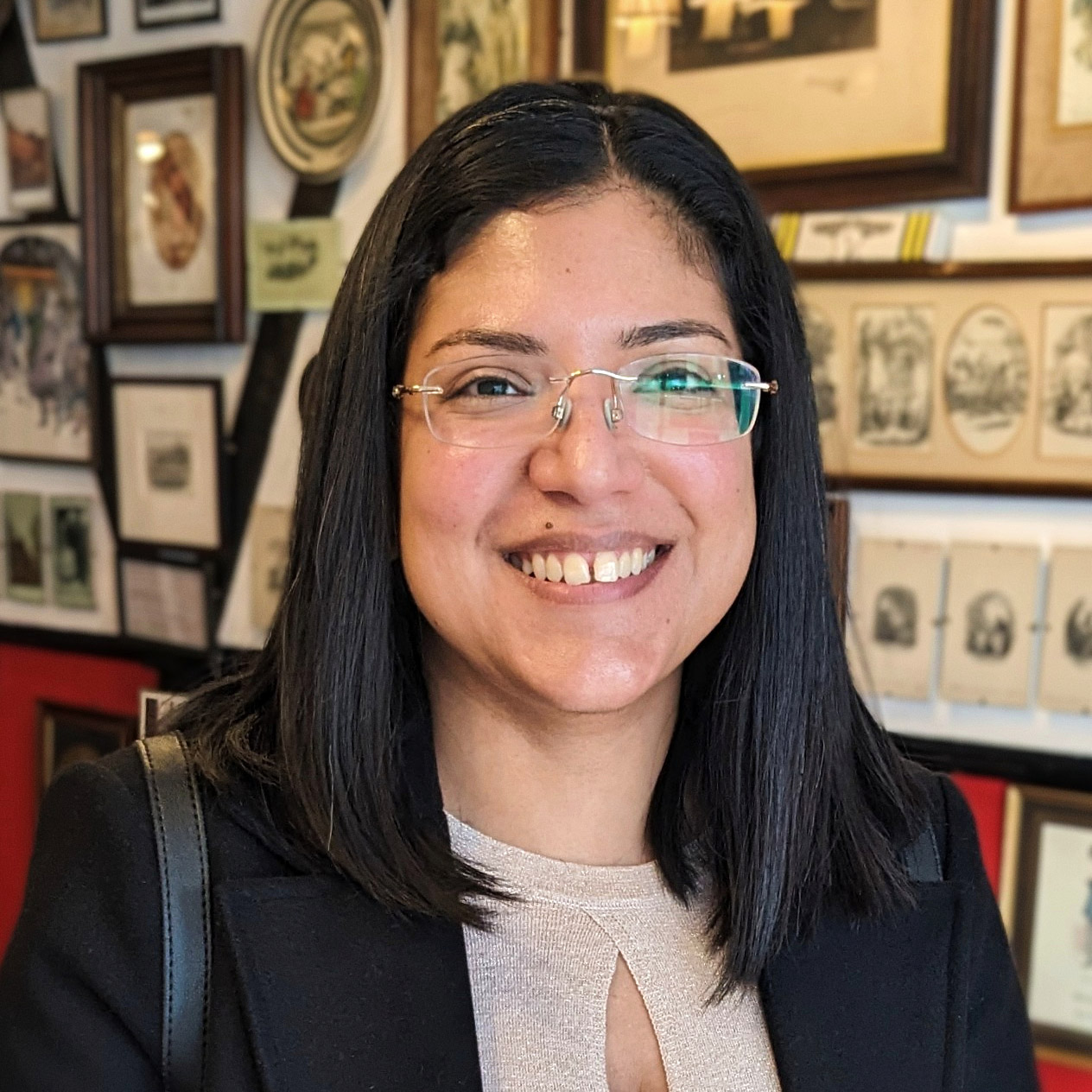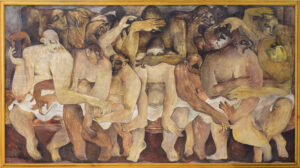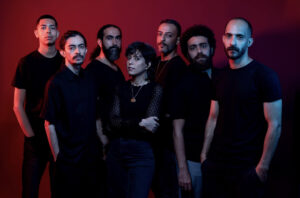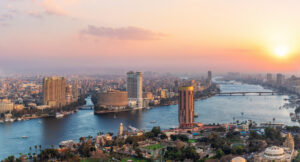Select Other Languages French.
Blending traditional Egyptian sounds with electronic textures, Youssra El Hawary's Taraddud transforms the pulse of Cairo’s chaotic streets into something both intimate and insurgent, suspended between memory and momentum.
The cries of street vendors, the blare of traffic, and Cairo’s restless hum seep into the music, woven with the warm resonance of traditional Egyptian instruments like the ney, buzuq, and sagat. Threaded through this organic foundation is the eerie glide of a theremin, the mournful pull of a cello, and the relentless churn of electronic loops. The result is a hypnotic soundscape suspended between memory and momentum, tradition and modernity. Against this backdrop, Youssra El Hawary returns from an eight-year hiatus with her new album Taraddud (2025).
The Rise and Fall of Egypt’s Indie Scene
To grasp the significance of Taraddud, one must return to the hopeful yet volatile years following the 2011 Egyptian Revolution. Then, in the streets of Cairo, Alexandria, and beyond, music was not mere entertainment but an urgent mode of expression. Indie and underground musicians became the chroniclers of a moment when anything seemed possible. Their songs captured anger, joy, satire, and resistance, reshaping the country’s cultural soundscape and offering a counter-narrative to the state’s carefully orchestrated nationalist anthems.
Cairokee rallied thousands with their anthems of defiance. Ramy Essam transformed chants into songs that reverberated across Tahrir Square. And artists like Youssra El Hawary, Maryam Saleh, Tamer Abu Ghazaleh, and Hamza Namira forged a powerful new sound, blending Egyptian and Western influences with witty socio-political commentary. This was a scene that did not merely provide background music to the revolution; it was its pulse.
Yet the optimism of that cultural flowering proved short-lived. As the military re-consolidated power in 2013, Egypt’s underground music scene faced escalating pressures: indie venues and cultural spaces were co-opted or shuttered, and censorship intensified to the point where even apolitical songs could arouse suspicion. Many artists either fell silent or sought refuge abroad as indie music, once a vibrant pulse of post-revolutionary optimism, became increasingly dangerous. Some artists, like Ramy Essam, continued to sing from exile; others, like filmmaker and music producer Shady Habash — who died in prison in 2020 for his involvement in a music video — paid with their lives.
In this hostile environment, Egypt’s indie scene fractured. Some musicians turned to apolitical love songs as a survival strategy; others abandoned music-making altogether. Yet a handful, against all odds, remained active, refusing erasure while carefully negotiating the boundaries of what was permissible. Among the rare survivors of this once-thriving landscape is singer-songwriter and accordionist Youssra El Hawary.
The Accordionist Who Sang Against the Wall
Born and raised in Cairo, El Hawary rose to prominence in the post-revolutionary years as one of the few women in Egypt’s indie scene. Wielding her accordion, she broke through in 2012 with the single “El-Sur” (The Wall), adapting Egyptian author Walid Tahir’s satirical poem into a playful yet sharp anthem that critiqued the military’s concrete barriers around Tahrir Square and across Cario, placed to suppress protests. With a wink, a smile, and a light-hearted tune, she sang about defiance in a way that was at once humorous and subversive.
This balance of seriousness and satire became El Hawary’s signature. While many of her peers embraced direct confrontation, her weapon was wit — a satirical lens drawn as much from French chanson as from Egyptian folk. Her debut album, No’oum Nasyeen (We Wake Up Forgetful, 2017), solidified her distinctive voice, blending accordion-led melodies with lyrics that explored forgetfulness, repression, and existential absurdity. Playful yet poignant, cynical yet deeply human, No’oum Nasyeen portrayed life through an Egyptian woman’s gaze — socially, where every step carried risk, and politically, as the perspective of an individual in a society where memory itself, set against state narratives, could be dangerous.
“What was once playful reflection now stands as warning: when people yield to forgetfulness, collective memory gives way, and silence becomes the only voice.”
Taraddud: Frequencies of Defiance
With Taraddud (Hesitation/Frequency, 2025), El Hawary marks a turning point in her musical project, embracing a bold stylistic shift beyond her earlier sound. After eight years of silence, she returns with music that is less whimsical and far more unflinching. Where No’oum Nasyeen reveled in exuberant whimsy, Taraddud ventures into darker, more experimental terrain. Produced with support from The Arab Fund for Arts & Culture (AFAC), the album resists easy categorization, weaving ambient textures, avant-garde soundscapes, and jazz influences with the raw, unrelenting hum of Cairo’s bustling streets.
At its center is El Hawary’s voice: soft, vulnerable, yet resolute. She sings not with the bravado of a revolutionary anthem but with the persistence of someone who refuses to disappear. Her lyrics, translated into English by Farah Barqawi and into French by Shadi El Hosseiny, dwell on the tension between censorship and survival.
The opening track, “Douri” (Loop), sets the mood. The cello’s Western gravity entwines with the metallic chatter of the traditional Egyptian sagat, spiralling into a clash of histories. The effect is eerily hypnotic as she sings:
We all are scared, we all are helpless
We all stay silent …
Play, oh music, on loop, and spin like the days
I once had it all, why does my day have no call?
Sing about me, oh music, sing
Before they fake my tale and sing it their way.
[Translated by Farah Barqawi]
The song, at once tender and insistent, lays bare a collective fear, helplessness, and silence: the eternal recurrence of the same, as Egypt sinks deeper into its pre-revolutionary repression. Yet it also insists that, to those who listen closely, this music carries the enduring persistence of a truth that will not be silenced.
Midway through the album, “Metronome” distils this very defiance. Its refrain, “Look at me, here I am / Here I am / Here I am,” is repeated until it shifts from lyric to lifeline, a refusal to disappear.
The album closes with “Naddaha” (Siren), which begins as a love song but gradually reveals itself as something darker: a corrosive, obsessive relationship that obliterates both parties. It ends with chilling resignation: “But I’ll forget you and you’ll forget it all / And the world will forget us.” This theme of forgetfulness circles back to El Hawary’s debut, No’oum Nasyeen (We Wake Up Forgetful). What was once spirited reflection now stands as warning: when people yield to forgetfulness, collective memory gives way, and silence becomes the only voice.
Listening as Resistance, Sound as Survival
This spirit of resistance extends beyond the music into the album’s visuals. Cairo’s skyline appears shrouded in a jaundiced haze, its tombstone-like buildings caught in a muted, decaying stasis like a graveyard of suppressed voices. Yet a dove occasionally darts across the frame — a fleeting reminder that this is not a dead but a living, breathing city.
Even the album’s very title encapsulates this duality. In Arabic, taraddud carries two meanings: “hesitation” and “frequency.” On the one hand, it suggests uncertainty in the face of censorship; on the other, persistence: a signal that returns no matter how often it is interrupted. This interplay between fear and endurance echoes not only through El Hawary’s new album and artistic journey, but also within the broader uncertainty that continues to shape Egypt’s future.
In a musical landscape where nationalist anthems are weaponized and satire becomes a ground for persecution, Taraddud stands as an act of survival. With this album, Youssra El Hawary proves that persistence in itself is a form of resistance. By transforming Cairo’s chaos, repression, and silence into haunting soundscapes, she gives voice to what is simmering beneath the surface. Listening, in this sense, is no longer passive: it becomes an act of solidarity, a way of carrying forward the fragile yet enduring frequencies of dissent.



